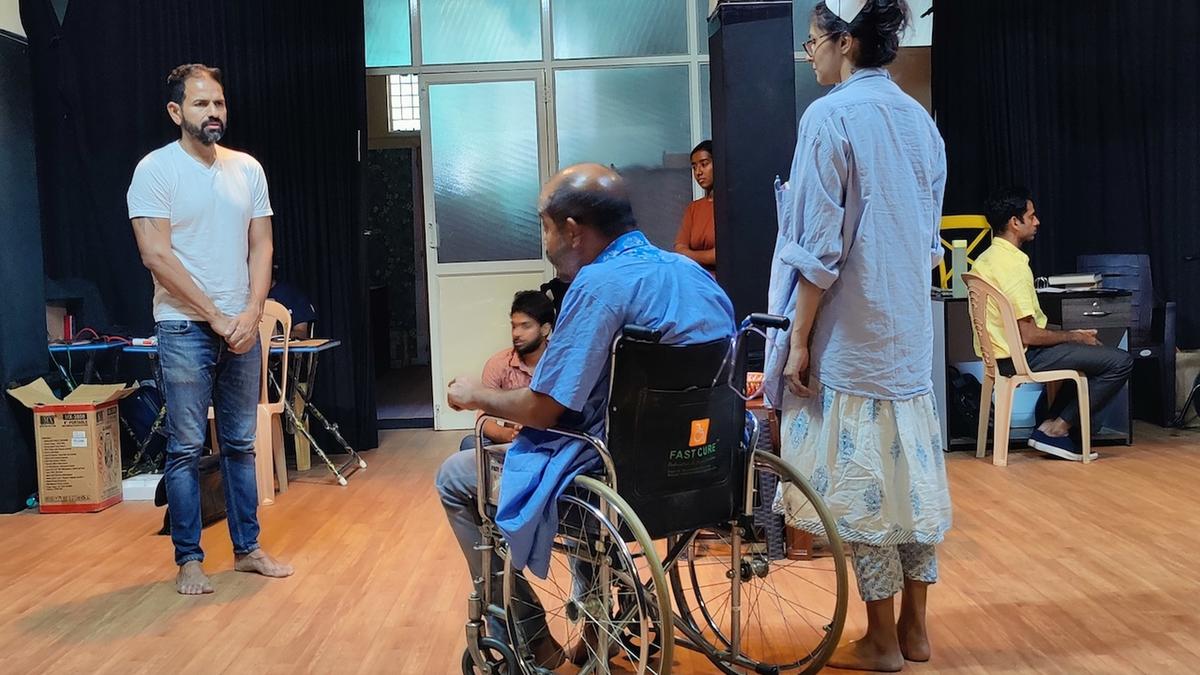
Anmol Vellani’s play ‘Innocence’ is a Kafkaesque take on modern Indian justice
The Hindu
‘Innocence’, presented by Toto Funds the Arts, will be staged at Goethe-Institut/Max Mueller Bhavan Bangalore from May 10 onwards
Imagine a world where Franz Kafka’s absurdism intersects with modern India’s vibrant chaos. A world where an innocent man fights a desperate battle for justice against a system designed to silence him. This is the world of Innocence, a black comedy written and directed by Anmol Vellani, premiering in Bengaluru on May 10.
Innocence draws inspiration from Kafka’s iconic novel The Trial, transposing its timeless struggle for justice to the realities of 21st-century India. As Anmol explains, “It’s an adaptation in two ways: first, by transposing the story to contemporary India, and second, by translating it from a novel to a theatrical performance.”
The play tells the story of an unnamed protagonist who finds himself inexplicably accused of a crime whose nature remains shrouded in mystery. As he navigates a labyrinthine legal system, his unwavering insistence on his innocence leads him down a path of despair and isolation.
There are inherent difficulties in adapting Kafka’s work, Anmol acknowledges. i “Adapting The Trial presented unique challenges. The novel relies heavily on long, descriptive passages to create dread and terror, which are difficult to translate directly onto the stage with minimal dialogue.” His task was transforming it into scenes filled with interaction, conflict, and dramatic tension.
Preserving the core themes and character dynamics was paramount for Anmol. Condensing a 200-page novel required cuts and additions, but its essence had to be retained. Kafka’s factual, report-like prose, despite its absurdity, posed a challenge: what theatrical style best reflected this?
Black comedy emerged as the answer. “It allowed characters to behave normally, mirroring Kafka’s prose while highlighting the underlying abnormality of their situation. The black humour aligns perfectly with what Kafka conveys in the novel, delivering a serious message through a seemingly lighthearted lens,” Anmol explains.
While the play delves into the absurd, it also carries a strong undercurrent of social commentary. Anmol carefully incorporates references to contemporary Indian political events, including the questionable electoral bonds scheme. He acknowledges, “These absurdities were everywhere. As I wrote the play, starting in 2017, I kept incorporating these contemporary Indian references, but with caution.”











